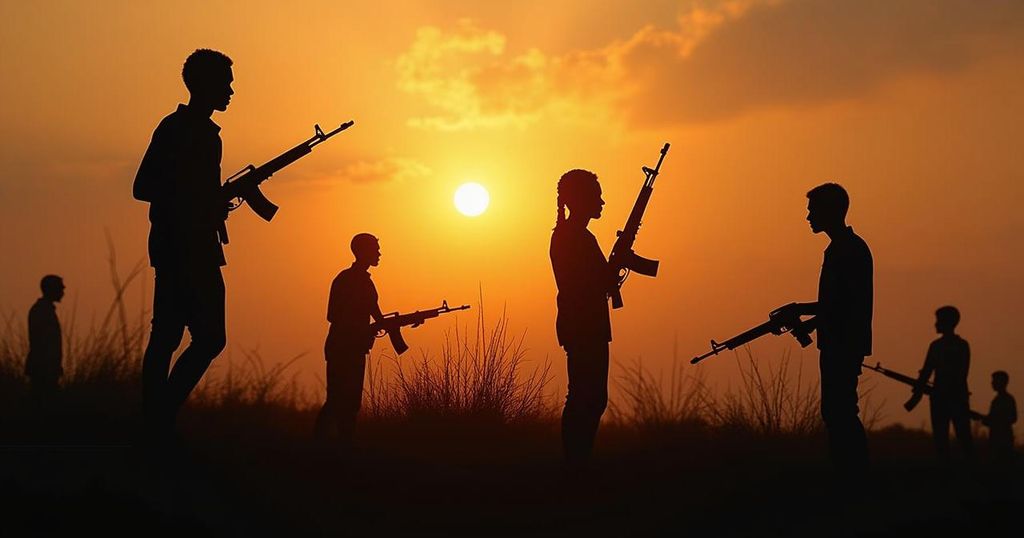While global focus has shifted towards the Middle East conflict, severe humanitarian crises continue in Sudan, Haiti, and Myanmar. In Sudan, escalating violence has led to significant civilian casualties and mass displacement. Haiti faces rampant gang violence and widespread hunger affecting millions. Myanmar suffers from continued military oppression and human rights abuses following a coup. These regions require urgent international support and attention.
In recent times, despite global focus on the escalating tensions in the Middle East, significant crises persist elsewhere, particularly in Sudan, Haiti, and Myanmar, which remain underreported yet profoundly impactful. In Sudan, civil war and famine continue to severely affect the populace, with claims of human rights violations and mass displacement following the outbreak of hostilities between the Sudanese Armed Forces (S.A.F.) and the Rapid Support Forces (R.S.F.) in April 2023. The situation in greater Khartoum has escalated, leading U.N. officials to highlight the urgent need for protection of civilians amidst ongoing violence and atrocities. Reports indicate civilian casualties and deterioration of health conditions, with cholera outbreaks claiming over 500 lives as of last month, amidst an ongoing humanitarian crisis that has displaced over 10 million people. In Haiti, a crisis of hunger exacerbated by rampant gang violence continues to engender widespread suffering. Approximately 700,000 individuals have been internally displaced, with gangs controlling approximately 80 percent of Port-au-Prince. Nearly half of the Haitian population faces acute food insecurity, with escalating food prices rendering sustenance unaffordable for many. Furthermore, the country’s economy is predicted to decline further, facing negative growth for a fifth consecutive year due to ongoing instability and the effects of recent climatic adversities. Meanwhile, Myanmar continues to grapple with the consequences of a military coup executed in February 2021, leading to significant civil unrest and severe human rights abuses. According to the U.N. Office of the High Commissioner for Human Rights, over 5,350 civilians have been killed, with widespread displacement and an increase in arrests exceeding 27,000. Political detainees reportedly face severe mistreatment in custody, including torture and ill treatment. The opposition parties within Myanmar have rejected overtures from the military government, insisting on conditions that facilitate a return to democratic governance and end to military involvement in politics.
The severe crises faced by Sudan, Haiti, and Myanmar illustrate the intersection of conflict, humanitarian disasters, and everyday suffering that often escape prominent media coverage. Sudan has experienced escalating violence amidst civil war, characterized by strategic military offensives that compromise civilian safety. Humanitarian organizations warn of an impending humanitarian disaster, with millions in dire need of assistance. In Haiti, the rise of gang control and consequent violence has led to significant internal displacement and food insecurity, reflecting a deteriorating socio-economic landscape compounded by geopolitical issues surrounding immigration. Likewise, Myanmar’s political landscape has been marked by a brutal military seizure of power, resulting in profound societal and humanitarian impacts, including high population displacement and widespread rights abuses, which have left the populace in a state of fear and vulnerability. These interconnected crises demand urgent international attention to offer both humanitarian relief and pathways toward lasting resolutions to the underlying conflicts, with an emphasis on human rights protection.
The ongoing crises in Sudan, Haiti, and Myanmar serve to remind us of the many regions suffering far from the spotlight. As international attention remains captivated by the immediate conflicts in other areas, the urgent humanitarian needs and rights of individuals in these nations deserve recognition and action. From the escalating violence and humanitarian fallout in Sudan to the crippling hunger and displacement in Haiti and the oppressive circumstances in Myanmar, these situations illustrate the need for a united global response to alleviate suffering and support the protection of human rights. It is imperative that the international community acts decisively to address these grave challenges and support the resilience of affected populations.
Original Source: www.americamagazine.org






